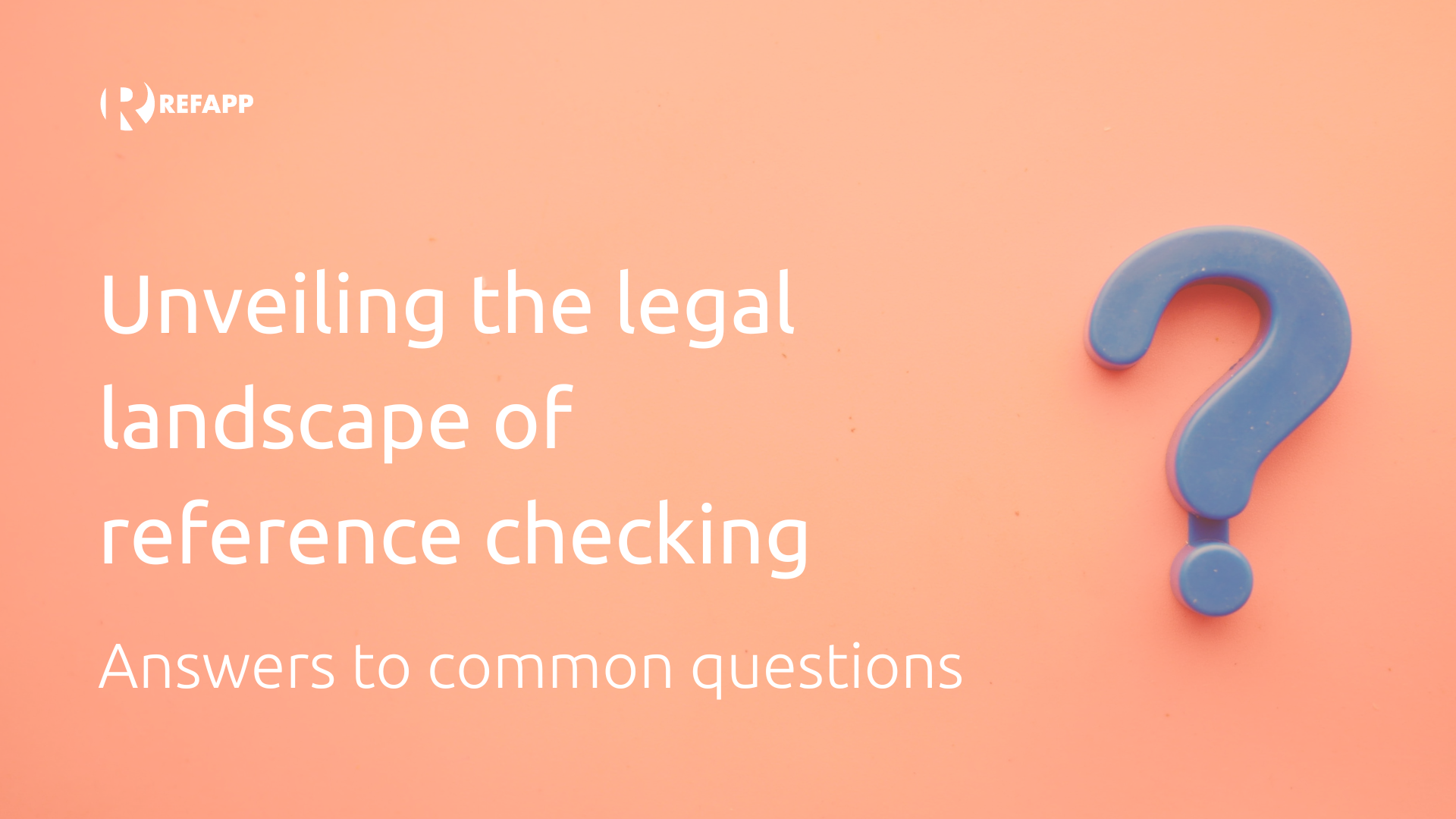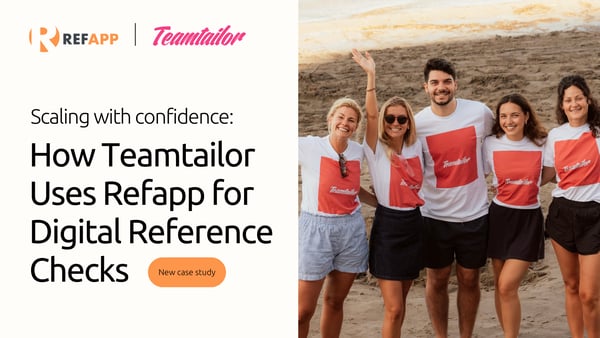
Reference checks can add tremendous value to the hiring process, but they come with legal considerations for employers, job applicants and reference providers. Fair practices and compliance with legal obligations are essential. In this article, we address the legal aspects of reference checking in the UK and provide tips on how to get the most out of your reference checks.
1. Could there be any legal risk if someone is rejected based on the reference check?
3. Are references mainly confirmation of dates of employment and title?
1. Could there be any legal risk if someone is rejected based on the reference check?
From the perspective of the employer requesting a reference and making the hiring decision, there is a legal responsibility not to discriminate against the candidates. According to the Equality Act 2010, employers are not allowed to discriminate against job applicants based on their:
- Age
- Disability
- Gender reassignment
- Marriage and civil partnership
- Pregnancy and maternity
- Race
- Religion or belief
- Sex
- Sexual orientation
For example, it is against the law to withdraw a job offer because the candidate has a disability that was mentioned in the reference. The Home Office (2022) has issued a code of practice to help employers avoid unlawful discrimination in the selection and recruitment process. According to this code of practice, employers can avoid unlawful discrimination by ensuring that the personnel selection is made on the basis of suitability for the position. In reference checks, you can mitigate the risk of discrimination while also increasing the validity by asking job-related behavioural questions that the referees answer using numerical scales.
2. Is it illegal to give someone a bad reference? If so, how can you ensure the insight you gather is beneficial to your decision-making process?
As long as it is fair and accurate, a reference can show that a candidate is not suitable for a job. For example, a reference can say that a candidate was dismissed or that a candidate does not have enough experience for a job. Giving someone a bad reference is only illegal if the reference is misleading, inaccurate, or discriminatory.
In order to obtain valuable insights about the candidates, the reference checks should be structured. To achieve structure in your reference checks, the following criteria should be met:
- The questions are based on a job analysis
- The questions are related to areas recommended by researchers, such as job-related behavioural questions
- The rating formats are standardised (e.g., numerical scales instead of free-text responses)
- The questions are consistent across candidates
3. These days aren't references mainly confirmation of dates of employment and title?
The content of reference checks varies greatly. There are basic reference checks containing just a short employment summary (e.g., job title and dates of employment). There are also detailed reference checks containing everything from work performance to unauthorised absence. In recent years, scientists have found ways of improving the utility of reference checks. For example, by conducting a job analysis and asking job-related behavioural questions, the reference checks can help recruiters predict how the candidates will perform on the job. With digital reference checks, it is possible to increase the reliability of reference checks by collecting data from a large number of referees without affecting the recruiter’s workload
It is also worth remembering that reference checking is the only aspect of a personnel selection procedure where the information about the job applicants comes from someone other than the job applicants themselves. Reference checks can protect organisations from counterproductive behaviours that could harm the organisation, its members, or its customers. For example, during a job interview, few applicants would say that they are usually late for work. Such information may only be gathered by contacting former employers.
4. Many companies are risk-averse and do not provide any details other than that they worked there from x to x?
A common reason why companies are restrictive about providing references is that they want to avoid being sued for defamation. However, the concern about defamation lawsuits is often exaggerated. In most reference cases, a defamation claim would require demonstrating an element of malice as well as falsehood. A reference based on an honest belief (notwithstanding any carelessness, impulsiveness, or irrationality), given without malice, will not lead to a defamation claim.
We hope this article has provided some insight! Don't hesitate to contact us if you have any questions or would like to know more about reference checking in your recruitment process!
References
Equality Act 2010. https://www.legislation.gov.uk/ukpga/2010/15/contents
Home Office. (2022). Code of practice for employers: Avoiding unlawful discrimination while preventing illegal working.

-1.png?width=600&name=Copy%20of%20Refapp%20kundcase%20(18)-1.png)

.png?width=600&name=Copy%20of%20Refapp%20kundcase%20(5).png)